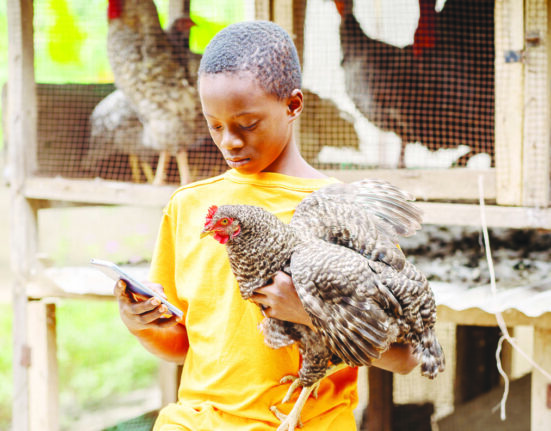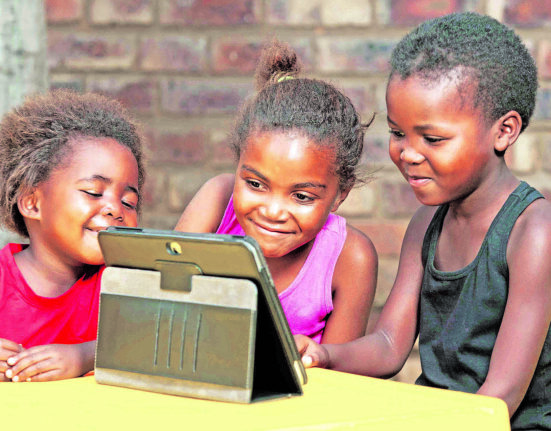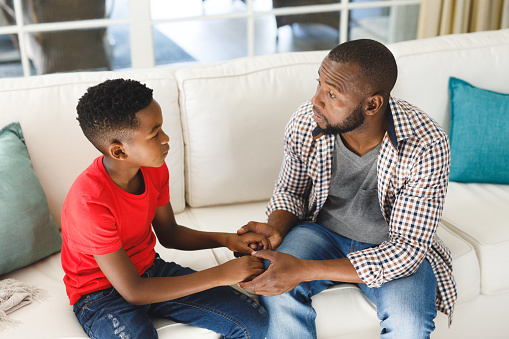(Published on Wednesday, February 16, 2022)

Learners decry cruel teachers, tough restrictions
When education institutions reopened last month, parents and other stakeholders were relieved to see learners back in school after almost two years of closure. But it is not business as usual as many anticipated. Learners are complaining that teachers are cruel. Some beat and prohibit them from asking questions. Short calls of nature are also regulated. Teachers, too, are under pressure to catch up with the lost time, not forgetting the effects the lockdown had on them financially and psychologically. The situation might be worse for pupils with special needs and those in boarding, who are detached from their parents, Ritah Mukasa writes
Parents Narrate Ordeals
Fionah (second name withheld), a resident of Entebbe, dreads the life her three daughters have experienced since they went back to school. They are in upper primary in a top private school in Entebbe. She says things are tough and the pressure is overwhelming.
“Teachers rap, instead of teaching. And if the child does not hear or understand, they are barred from asking questions,” she says.
“One of my girls says she copies from her neighbour, who always has gaps in her work,” she adds.
Fionah says she is at her wits’ end because she is afraid of complaining for fear that the teachers may torment her children.
Fionah adds that the children study from 6:00am until late, but with short breaks.
“When they complain of headache, the teachers shout at them to concentrate. Short calls of nature are also regulated,” she adds.
Parents are not allowed to communicate with the teachers; they do it stealthily, she says.
She wanted to take the girls to boarding section, but hesitated because parents are not allowed access to the dormitories to see the conditions.
“The pressure is a lot. I pray these children do not break down along the way. It is just almost five weeks in school, but they are already worn out,” she says.
Madrine, another parent, says her son’s teacher was so rude to the children and when parents went up in arms, the teacher was fired.
Another complaint comes from a six-year-old. The mother is concerned that the teacher has made it a habit to mark him wrongly and this has left the mother confused.
“Whenever he complains, the teacher shouts at him and gets back to her phone,” she says.
Similarly, Jessica, a mother of two, almost jumped out of her skin when her son returned home on his second day at school with a swollen face, only to discover that he had hit himself on the school truck.
He alleged that when he went crying to the class teacher, she just shook her head and burst into laughter. “I wondered why she did not take him to the school nurse because the swelling on his face caused him headache,” Jessica adds.
On the other hand, Jessica says in that private school, some teachers sideline learners who missed online lessons during the lockdown. They ignore them in class or give attention to those that attended.
Madrine also alleges that some schools are pushing parents to enrol their children in boarding to complete the syllabus, yet the education ministry warned day schools against this arrangement. Others teach at night.
It Is Hard For Teachers As Well
Peter Okware, a teacher trainer and director of Teachers in Need (TIN) organisation, says many teachers are struggling with the writing speed of learners and inability to read and write, yet several of them were double promoted by the parents.
“Many teachers are burning out in silence. They cannot come out, for fear of losing their jobs,” he asserts.
Okware adds that another monster challenge is that most schools ignored the abridged curriculum and are following the normal one, yet they are teaching learners who forgot most of the content and others skipped two classes. Additionally, it is still business as usual in most schools. The blackboard is still the dominant teaching method. Learners are also subjected to writing notes all day without rest.
It is important to appreciate the fact that teachers were broken by the lockdown and were not helped to normalise, according to Agnes Namaganda, a parent, teacher and director of Dominion Christian Academy in Nyanama, a Kampala suburb.
They continue to live with the uncertainty and worries of another lockdown.
“Teachers fear that schools may close again and they go back to the lockdown misery. That apprehension is eating them up and their bosses,” she opines.
Namaganda also interfaces with teachers who are living in dire conditions countrywide.
“Many dress poorly and misery is written all over their faces. So, how do you expect such teachers to pamper learners?” she wonders.
Several schools have had low turn up of learners, which makes school maintenance difficult, especially for private schools, notes Simpson Muhwezi, a teacher and creative director of Wandiika writing prize.
Teachers’ payments are cut or delayed and this has a toll on their ability to meet their basic needs and motivation.
Some are sacked over flimsy complaints.
Namaganda appeals to schools not to sack the teachers, but help them get better.
Okware advises schools to adopt practices that will make teaching and learning interesting. Also, teachers should be supported to become flexible and accommodative to all learners. Besides, parents should be involved in the teaching and learning process in this COVID-19 era.

We Need Refresher Courses, Pay Rise
Teachers Speak Out
Cosmos Baluku, a teacher trainer, believes some teachers are beating learners out of experience. In other words, they also experienced brutality while growing up, so they think it is normal, yet it is illegal.
Baluku suggests that counselling should start from training institutions. Student teachers should be discouraged from the illegal practice of disciplining learners by caning them.
“Find friendly ways of reprimanding pupils. Schools should adopt counselling, positive reinforcement and parenting,” he expounds.
Also, refresher courses and counselling sessions should be organised for the teachers.
James Omoding, a special needs education teacher and trainer, stresses that these should be done consciously to support children and parents.
“Focus on psychosocial support. Community and opinion leaders in the rural context can be brought in the fold,” he suggests.
Where schools fail, the government should offer support.
According to Omoding, more focus should be on promoting child rights and responsibilities.
The teachers should also be trained on the abridged curriculum, such that they understand the different topics and how they were adjusted or shifted from one level to another.

When it comes to handling learners with disabilities, Omoding is of the view that teachers should be offered short courses, more so those on teaching children with disabilities. Also, engage law enforcement officers to reprimand those who abuse children’s rights.
Relatedly, the chalkboard being most dominant, teachers should be supervised to help them shift from the old style of instruction to the new ones, such as the use of computers and online learning.
“This is a gradual process as the old style phases out We should also motivate them with drama and build their self-esteem as well,” he asserts.
Install Cameras in Classes
Fred (second name withheld), a secondary school teacher, advocates for salary increment and incentives to motivate teachers to love their job. These include housing allowances, transport, overtime and weekend allowances.
“Teachers harass learners because they are financially constrained and this affects their productivity,” he says.
Fred is quick to add that some teachers do not have the passion for teaching. They joined the profession out of circumstances. This, coupled with poor pay, leads to brutality.
He also advises school owners to install cameras in the classrooms to monitor the teachers.
Councillor’s Advice
Dickson Tumuramye advises rude teachers to put themselves in the learners’ shoes.
“Ask yourself if you would feel happy being treated that way. Develop empathy before punishing the learner,” he says.
Also, teachers should understand that most of the learners had switched off from school life when schools closed. Others were grossly affected by the pandemic when their loved ones died.
They need counselling and psychosocial support. Teachers should try to fill the gap and help children to fit in school comfortably.
“Use your psychology to understand what children are experiencing and counsel them,” he advises.
Amanda Felly Baisuka, who employs teachers in Nanny a Day Uganda, a mobile babysitting company, cautions teachers to understand that it was an automatic promotion.
“If some teachers had forgotten content, what do you expect of the learners?” she wonders.
Remember, most of these children were exposed to things, including the Internet, social media and unnecessary freedom, which shifted their attention away from academics. Besides, some parents were preoccupied with making ends meet to parent their children. Baisuka appeals to teachers to be patient with the learners.

What next?
Amanda Felly Baisuka, who employs teachers in Nanny a Day Uganda, a mobile babysitting company, requests parents to be lenient to the teachers.
“I recently met a parent whose child was beaten. She was in defense of the child, but I wished she had listened to the teacher as well,” she narrates.
Baisuka adds that people react differently to situations. Some even break down, and teachers are no exception.
“Remember, some parents spoil their children and expect everyone to pamper them,” she explains.
Report cases and follow them up
Namaganda advises parents to report the feedback they get from their children and also follow up to ensure they are helped.
“Where possible, give solutions because these are your children,” she says.
Unless the situation gets out of hand, a parent should not transfer their child to another school. Also, do not scold the teachers because rage does not solve challenges, Namaganda adds.
Closely related to that, Fionah suggests that schools should put in place Parents Teachers Associations (PTA), where all parties are represented. They should also have regular meetings where parents can openly express their views.
“In our school, we have not had parents’ meetings for seven years now and this hurts,” she shares.
According to Dickson Tumuramye, a parenting counsellor, children should be able to confide in their parents when the teachers’ behaviour is not changing or when the school is not taking action.
Where possible, empower them to report to the headteacher or senior woman teacher and such confidants should take action.
What The Ministry Says
A commissioner at the eduction ministry says they have put in place several programmes that aim at offering psychosocial support to the teachers in private and government-aided schools. For example, the Good schools toolkit, which includes activities for staff, students and administration.
Statistics
Schools were closed in March 2020 in a nationwide lockdown to curb the spread of the COVID-19 pandemic. According to the UN children’s agency, UNICEF, about 15 million students were affected by the closure of schools. These reopened from January 10, 2022.
How Indiscipline Teachers Are Handled Elsewhere
According to UNICEF, reports of violence against children in Africa differ significantly from one country to another. For example, exposure to teachers’ violence was reported by 86% of girls in Kenya, 82% in Ghana and 66% in Mozambique in 2020.
In Tanzania, one out of two children reported having experienced physical violence at the hands of teachers.
In their 2020 study report titled, “Reducing violent discipline by teachers using interaction competencies with children for teachers (ICC-T): study protocol for a matched cluster randomised controlled trial in Tanzanian public primary school”, scholars; Faustine Bwire Masath, Katharin Hermenau, Mabula Nkuba and Tobias Hecker concur that violence against children in Tanzanian schools is still high due to the legalisation of punishment and social acceptance of violent discipline in the community.
The Corporal Punishment Guideline sets the number of strokes from six to four and mandates the headteacher to administer the punishment.
However, they have to document details of the learner being punished; their names and misbehaviour.
“But some teachers administer corporal punishment without compliance to the law,” the report reads.
It further indicates that teachers use physical and emotional acts to inflict pain and correct misconduct. These include use of hands, canes, whips and sticks. The scholars recommend preventative intervention approaches and studies aimed at eliminating the use of violent discipline by teachers.
In Kenya
Evelyn Jepkemei, an educationist, in her article, “School teachers lack skills, still cane indisciplined pupils as the only form of punishment”, published by the Standard, reports that caning was banned in Kenya and counselling prescribed.
Unfortunately, teachers are not equipped to deal with certain levels of indiscipline because they are not human behaviour specialists. They lack the skills to handle emotional and behavioral problems and because of this gap, they still cane indisciplined learners, while others just watch helplessly.
“For counselling to replace the cane, teachers must be well-trained in behavioural sciences, social and emotional intelligence and leadership,” she suggests.
However, Jepkemei adds that while the education ministry emphasises that counselling is part of teacher training, educationists concur that the course is not adequately covered in their curriculum.
Intervention Strategies
The United Nations General Assembly set the agenda to end all forms of violence against children and United Nations Convention on the Rights of the Child calls for the protection of children from all forms of physical or emotional violence. On the other hand, ActionAid’s intervention approach, dubbed Stop Violence Against Girls in Schools, that was carried out in Ghana, Kenya and Mozambique showed significant results.
Don’t rush the learners
Simpson Muhwezi asks parents to be patient with their children and desist from skipping classes. There is still time to move the children back to the appropriate classes if they fail to cope.
“Rushing a child to a new class will affect them in the long run. They will lose motivation when they fail to catch up,” he says. Muhwezi adds: “The child will hate school and opt to drop out. Or they might keep in school but lose interest and self-esteem.”
Eventually, what a parent anticipated to work for their child becomes a big hindrance to their performance.
“Assess your child before you rush them. Desist from peer influence; rushing your child because your friends have done the same,” he cautions.
Muhwezi says parents should involve children in decision-making.
“Get their view and prepare them psychologically so that they do not seem to be coerced,” he maintains.
Regardless, learners need teachers’ extra assistance, as they might take long to grasp what they are taught. “Be creative in delivering lessons and give individual attention to learners with special needs,” he appeals to the teachers.








Leave feedback about this